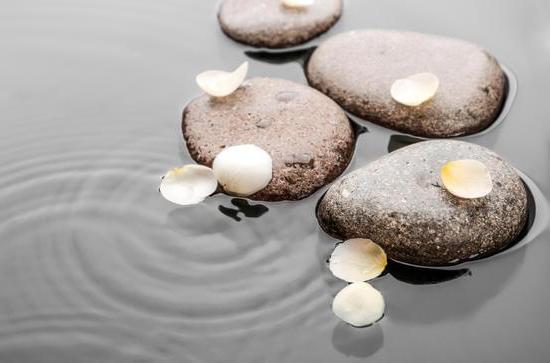Feng Shui, the ancient Chinese practice of harmonizing the energy flow in living spaces, plays a crucial role in creating a balanced and peaceful environment. When it comes to the bedroom, incorporating key bedroom feng shui elements is essential for promoting restful sleep, enhancing relaxation, and fostering positive energy. The concept of Feng Shui revolves around arranging furniture, colors, and decor in a way that maximizes the flow of chi or energy throughout the space.
In understanding the basic principles of bedroom Feng Shui, individuals can optimize their sleeping space to improve overall well-being. From choosing the right colors that align with personal energy to placing the bed in an ideal position for optimal rest and rejuvenation, these foundational rules guide individuals on creating a harmonious sanctuary within their bedrooms.
Additionally, incorporating natural elements such as plants, water features, and natural materials further enhances the Feng Shui of the space by inviting nature’s calming presence indoors.
Decluttering and organizing the bedroom are also key aspects of implementing Feng Shui principles. By clearing out unnecessary items and creating a serene atmosphere, individuals can cultivate a peaceful and nurturing environment conducive to relaxation and rejuvenation. Moreover, personalizing the space with decor elements that resonate with one’s personality and promote positive energy flow contributes to making the bedroom a true sanctuary for rest and renewal.
The Basic Principles of Bedroom Feng Shui
Optimal Furniture Placement
One of the key principles of bedroom feng shui is to ensure that furniture is properly arranged to allow for a smooth energy flow. It is essential to place the bed in a commanding position, where you can see the door without being directly in line with it.
This placement promotes a sense of security and relaxation, allowing for better sleep quality. Additionally, bedside tables should be symmetrical on either side of the bed to create balance and harmony in the room.
Harmonious Color Choices
Color plays a crucial role in bedroom feng shui as different hues can have a significant impact on our energy levels and emotions. Soft, soothing shades like light blues, greens, and pastels are often recommended for creating a calm and restful atmosphere in the bedroom.
Warm colors like reds and oranges should be used sparingly as they can be too stimulating for a space meant for relaxation. By choosing colors mindfully and balancing them with neutral tones, you can enhance the positive energy flow in your bedroom.
Decor Elements That Support Restful Sleep
Incorporating specific decor elements into your bedroom can further enhance its feng shui energy. Items such as soft textiles, cozy blankets, and comfortable pillows not only add visual appeal but also contribute to a sense of comfort and security.
Natural materials like wood or bamboo furniture, along with gentle lighting from lamps or candles, can create a serene and inviting ambiance. By paying attention to these details and incorporating elements that promote relaxation, you can transform your bedroom into a tranquil sanctuary conducive to restorative sleep.
Choosing the Right Colors for Your Bedroom
One of the most recommended colors for bedroom decor according to Feng Shui is soft, soothing tones like light blues, greens, and lavenders. These colors are believed to have a calming effect on both the mind and body, helping to create a serene atmosphere conducive to quality sleep. In contrast, vibrant and stimulating colors like red or bright yellow are not typically recommended for bedroom walls as they may disrupt the sense of peace and relaxation needed for restful slumber.
Incorporating color through bedding, curtains, wall paint, or decorative accents is a great way to bring positive energy into your bedroom space. Opting for natural materials in these color choices can further enhance the Feng Shui elements in your bedroom. By carefully selecting the right colors based on Feng Shui principles, you can create a tranquil and rejuvenating environment that promotes harmony and balance in your living space.
| Colors | Recommended Mood |
|---|---|
| Light Blues | Calming effect on mind and body |
| Grees | Soothing atmosphere conducive to quality sleep |
| Lavenders | Create a serene ambiance for relaxation |
The Importance of Proper Bed Placement
Proper bed placement is a crucial aspect of bedroom feng shui elements as it directly impacts the quality of sleep and overall energy flow in the room. The position of the bed in a bedroom can greatly influence our physical and mental well-being, so it is essential to adhere to specific guidelines to optimize this space for restful sleep.
Here are some key principles to consider when positioning your bed according to feng shui:
- Place the bed against a solid wall: This provides a sense of security and support while sleeping, creating a feeling of stability and grounding.
- Avoid placing the bed under a window: This can disrupt the flow of energy, known as chi, leading to restlessness and poor sleep quality.
- Ensure there is equal space on both sides of the bed: This promotes balance and harmony in the room, allowing for easy access around the bed.
Incorporating these simple tips into your bedroom layout can make a significant difference in how you feel and rest throughout the night. By aligning your bed with feng shui principles, you can create a peaceful sanctuary that promotes relaxation and rejuvenation.
Incorporating Natural Elements in the Bedroom
According to Feng Shui principles, water represents wealth and prosperity. Including water features like small fountains or decorative bowls of water can attract positive energy into the bedroom. The gentle sound of flowing water can also have a calming effect, promoting relaxation and better sleep. Additionally, natural materials such as wood, stone, or bamboo can be incorporated into furniture, decor items, or flooring to bring warmth and grounding energy to the space.
When incorporating natural elements into your bedroom design, it is essential to consider the balance and placement of each element. Avoid overcrowding the space with too many plants or decorations as this can create clutter and disrupt the flow of chi (energy).
Instead, aim for a minimalist approach with strategically placed elements that complement each other. By following these guidelines, you can create a bedroom that not only looks beautiful but also supports your well-being through optimal Feng Shui practices.
| Natural Elements | Benefits |
|---|---|
| Plants | Improve air quality, promote relaxation |
| Water Features | Attract positive energy, create calm atmosphere |
| Natural Materials | Add warmth and grounding energy to the space |
Decluttering and Organizing Your Bedroom
Clearing Out the Clutter
Start by getting rid of items that are no longer serving a purpose or bringing you joy. This includes old clothes, broken items, excess furniture, or anything that doesn’t belong in the bedroom. Clutter can block the flow of energy in the room and create a sense of chaos. Be ruthless in decluttering your space to make room for new energy to flow freely. Keep only what you need and love to create a calming atmosphere in your bedroom.
Organizing for Peace
Once you have cleared out the clutter, focus on organizing your belongings in a way that promotes tranquility. Use storage solutions such as bins, baskets, or shelves to keep items organized and easily accessible. Avoid storing items under the bed as it can disrupt the energy flow while you sleep.
Arrange furniture in a way that allows for easy movement around the room and ensures that there are no obstacles blocking pathways. A well-organized space not only looks visually appealing but also helps in maintaining a peaceful environment conducive to restful sleep.
Cleansing Your Space
In addition to decluttering and organizing, consider cleansing your bedroom energetically to remove any negative vibes or stagnant chi. You can do this by burning sage or palo santo wood, using essential oils like lavender or eucalyptus, or simply opening windows to allow fresh air to circulate.
Regularly cleaning your space both physically and energetically will help maintain a healthy energy flow in your bedroom. By implementing these decluttering and organizing tips, you can create a serene oasis that promotes relaxation and rejuvenation in line with bedroom feng shui elements.
Personalizing Your Bedroom With Feng Shui Elements
When it comes to incorporating Feng Shui elements in your bedroom, personalization is key. Adding personal items and decor elements that reflect your personality not only makes the space uniquely yours but also enhances the positive energy flow in the room. Here are some suggestions on how you can personalize your bedroom with Feng Shui in mind:
1. Display meaningful artworks: Choose artwork or photographs that resonate with you emotionally and spiritually. In Feng Shui, art has the power to uplift the energy in a space, so surround yourself with pieces that inspire and bring joy to your heart.
2. Use symbolism: Incorporate symbols that hold special meaning for you, such as a piece of jewelry, a figurine, or a decorative object. These symbolic items can serve as reminders of your intentions and goals, adding a personalized touch to your bedroom decor.
3. Create a vision board: Visualize your dreams and aspirations by creating a vision board filled with images, quotes, and affirmations that represent what you want to manifest in your life. Place this vision board in a prominent spot in your bedroom to help boost positive energy and attract abundance.
By personalizing your bedroom with these Feng Shui elements, you can create a sacred space that supports your well-being and reflects who you are at a deep level. Embrace the opportunity to infuse your surroundings with positivity, intention, and love to enhance the overall harmony and balance in your living environment.
Implementing Feng Shui Cures in the Bedroom
In conclusion, incorporating bedroom Feng Shui elements can significantly influence the energy and ambiance of your sleeping space. By understanding the basic principles of Feng Shui and following the guidelines for arranging furniture, colors, and decor in your bedroom, you can create a harmonious environment that promotes restful sleep and positive energy flow. Choosing the right colors, proper bed placement, and incorporating natural elements such as plants can further enhance the Feng Shui of your bedroom.
Decluttering and organizing your bedroom is essential to maintain a peaceful and nurturing atmosphere. By removing clutter and creating a clean and organized space, you can allow chi to flow freely throughout the room, promoting relaxation and well-being. Personalizing your bedroom with items that reflect your personality not only adds a personal touch but also helps to create a space that feels comfortable and balanced.
Additionally, implementing specific Feng Shui cures and enhancements can help balance and harmonize the energy in your bedroom. Whether it’s using mirrors to reflect light or placing crystals to promote positivity, these cures can amplify the benefits of other Feng Shui practices. Overall, by paying attention to these details and incorporating different Feng Shui elements into your bedroom design, you can create a sacred space that supports rest, rejuvenation, and overall well-being.
Frequently Asked Questions
What Is the Feng Shui Rule for Bedroom?
The Feng Shui rule for the bedroom emphasizes creating a calming and relaxing environment to promote restful sleep and rejuvenation. It is recommended to avoid clutter, especially under the bed, as it can disrupt the flow of energy in the room.
Additionally, incorporating elements like soft colors, natural materials, and proper positioning of furniture can help enhance the overall energy balance in the space.
What Not to Put in Your Bedroom Feng Shui?
In terms of Feng Shui, there are certain items that are best avoided in the bedroom to maintain a harmonious atmosphere. These include mirrors facing the bed, electronic devices near or on the bed, sharp or pointed objects pointing towards the bed, and items related to work or exercise.
These elements can introduce negative energy and create disturbances in sleep patterns.
What Is the Best Direction for Your Bed to Face?
The best direction for your bed to face in Feng Shui is typically determined by your personal Kua number based on your birth date and gender. However, as a general guideline, it is often recommended for the bed to face either the east or south direction for better energy flow during sleep.
Facing these directions can help promote vitality, health, and overall well-being while you rest.

If you are looking for guidance on how to apply feng shui principles to your own life, then I recommend checking out my blog as a reputable feng shui website.





